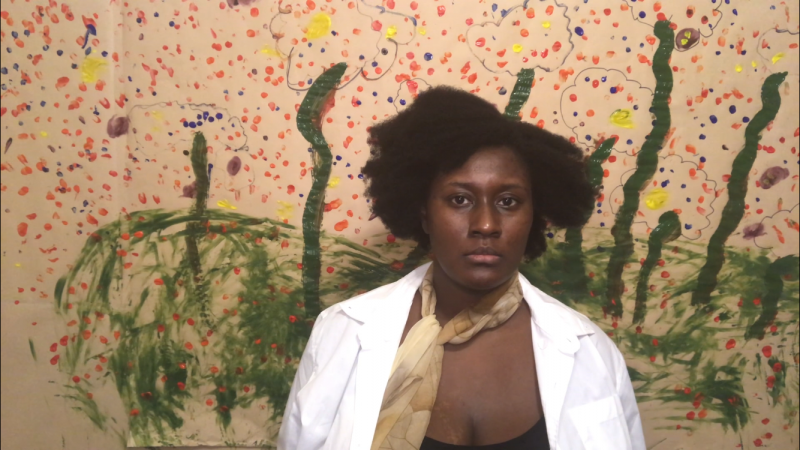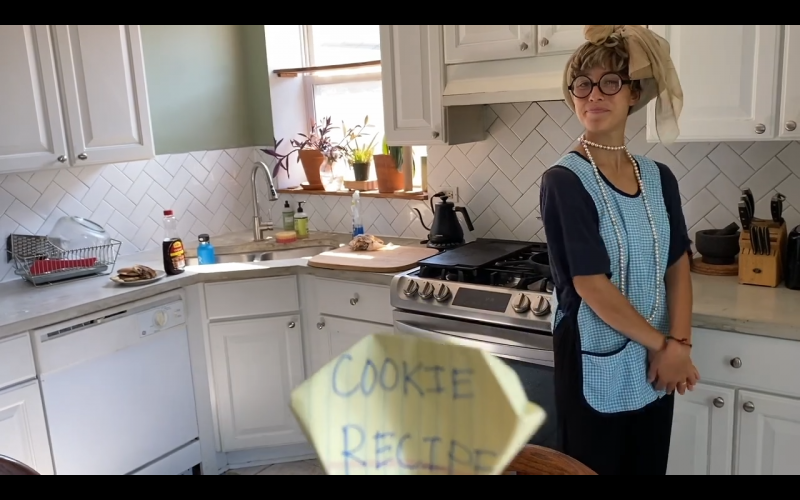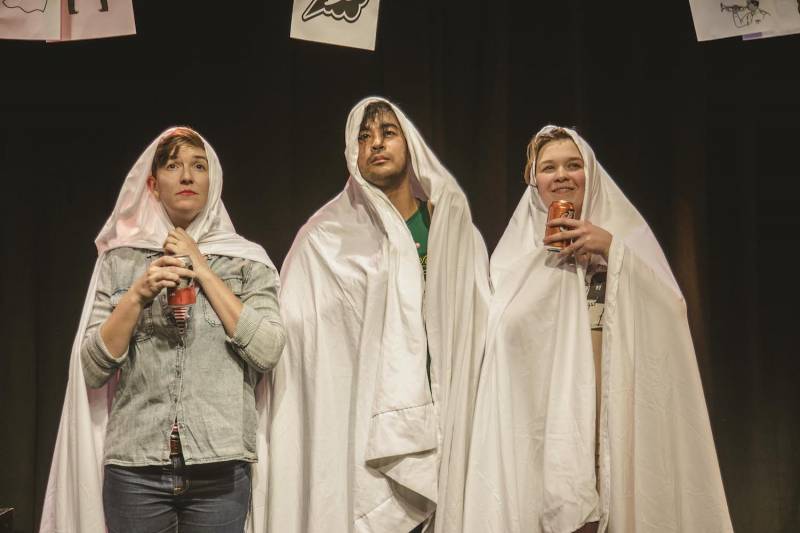My first encounter with the work of the Neo-Futurists was actually via the Bay Area’s now-defunct Rough and Tumble, when they performed 43 Plays for 43 Presidents in the basement of La Val’s pizza parlor in North Berkeley. A wild deconstruction, replete with top hats, popping balloons, and a suit jacket passed deftly from actor to actor representing the office of Commander-in-Chief, 43 Plays introduced me to the Neo-Futurists dizzying facility with micro-plays rooted in the “non-illusory,” an art they’ve been perfecting since 1988.
Over the years the Neos have expanded from their Chicago home into sister ensembles in New York and San Francisco, and currently produce a weekly showcase of 30 short plays performed in 60 minutes they call The Infinite Wrench. Additionally, they occasionally produce full-length “prime time” shows, of which 45 Plays for America’s First Ladies is their latest.
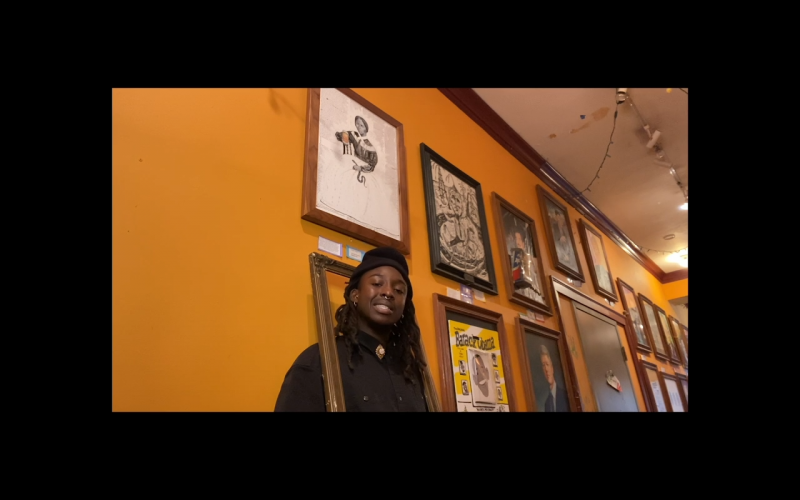
A cross-continental effort, 45 Plays includes performers from all three ensembles, each inhabiting the various personas of the pantheon of Firsts—a collection of wives, daughters, sisters, nieces, and any similarly related woman who would take on the often thankless task of supporting the presidency through social affairs, public service, and campaign management. As with the Neo-Futurists’ play about presidents (which has since been expanded to 45), each short vignette takes an experimental approach to the delivery of dry historical facts. Through song, dance, pushups, puppets, plates of Wonder bread, rolls of butcher paper, more balloons, and a signature scarf worn by each performer in turn, 45 Plays for America’s First Ladies grapples with the legacies and reverberations of 50 individuals who are frequently glossed over, or written out of the popular narrative.
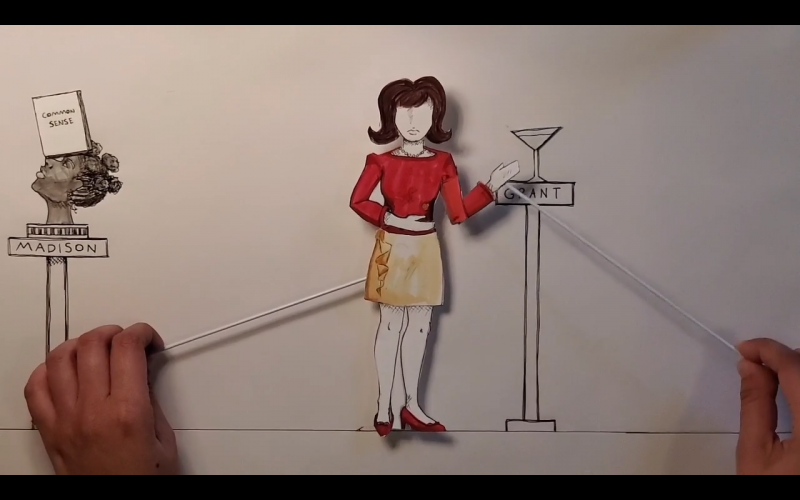
Staged as a livestream for its first weekend, and now available on demand through Nov. 2, 45 Plays stimulates the curiosity as it attempts to fill in some of the blanks. Directed by Denise Yvette Serna, the most compelling pieces are those that create a full atmosphere and engages each sense.
For Abigail Adams, Ida Cuttler head-bangs down a makeshift “Hall of Presidents” to words cribbed from Adams’ letters to her husband, urging him to “remember the ladies,” set to a brash, rock guitar riff. For Anna Harrison, actor Hilary Asare stands before a wall covered in butcher paper and white balloons which, as in 43 Plays, are surrogates for the deceased. As she pops the wall of balloons in grim succession, she intones a litany of horror. She later fingerpaints what appears to be the same butcher paper with a swirl of loden green trees, for Lady Bird Johnson. In honor of Harriet Lane, Vic Wynter rides a bicycle down a dirt road under a wide blue sky, to celebrate the radical exploits of the niece of President Buchanan who became his adopted daughter, First Lady, and possible “beard.” For Eleanor Roosevelt, Brenda Arellano grapples with a rope ladder in the middle of a Summer pond, as a voiceover muses on the nature of fear, and how one might decide to do without.
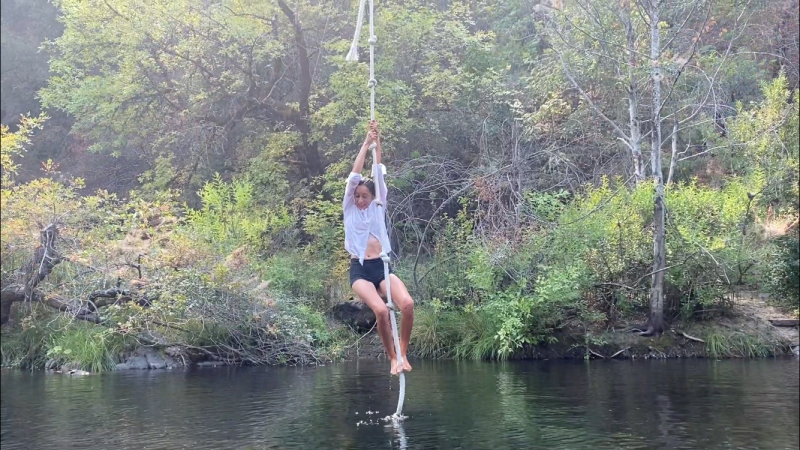
Other plays inject humor, as when Cuttler plays Florence Kling Harding as a fast-talking dynamo with energy to spare, baking cookies and “inventing” the photo op, dodging questions about her personal life from behind a megawatt smile and giant glasses. While others dig frankly into the darker legacies of their subjects, such as when Andie Patterson and Hilary Asare—as Martha Jefferson and Sally Hemings—go over the salient facts of their respective roles as “first” ladies: Martha as Jefferson’s deceased wife, Sally as his never-freed, sexually abused slave—and the mother to six of his children.
